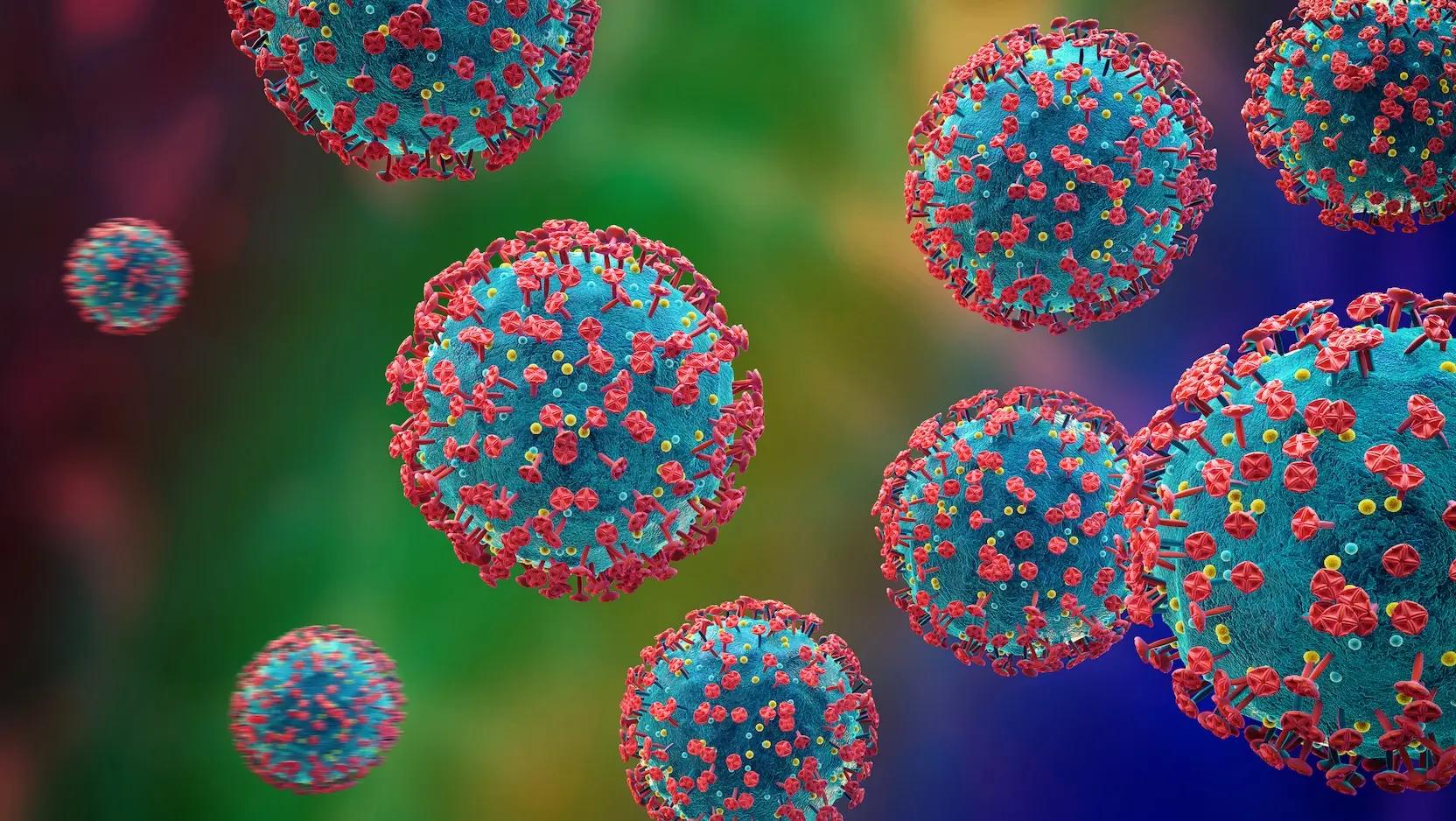What do we know about the new Omicron subvariant of COVID, NB.1.8.1?

Since COVID-19 first appeared, different variants of the virus that causes the illness have emerged, including Omicron, which was first identified in 2021. A new form of the Omicron variant has recently appeared in the United States, with the potential to cause an increase in infections in the coming months.
While the new variant is being closely monitored by the World Health Organization (WHO) and currently appears to pose low risk for severe illness, it's important to stay informed and cautious. With recent major structural changes to the U.S. public health infrastructure, including shifts at the federal level, timely guidance and coordinated response may be less predictable — making individual preventive measures and staying up to date on vaccinations more important than ever.
As an infectious diseases expert, I want to help people stay informed. Below are answers to common questions about variants.
What do we know about the new COVID variant NB.1.8.1?
NB.1.8.1 is a recently identified subvariant of Omicron, first detected in January 2025. It has been designated a "variant under monitoring" by the WHO due to its increasing global prevalence. As of the end of April 2025, it accounted for approximately 10.7% of global sequenced COVID-19 cases, up from 2.5% a month earlier. The variant has been detected in over 20 countries, including the United States, where cases have been identified through airport screenings and community surveillance.
What is a variant, and where do variants come from?
A variant is a subgroup of viruses within a species that share an inherited set of distinctive changes in their genetic code.
When a virus replicates or makes copies of itself, errors can occur in the instructions (the RNA template) as they're being read. In other words, the virus has a misprint — called a mutation.
Viruses mutate at different rates, but RNA viruses like SARS-CoV-2 (the virus that causes COVID-19) tend to mutate fairly quickly. Most of these changes don’t matter much, but occasionally, a mutation can help the virus spread more easily or evade immunity, which is how new variants emerge.
How does the Omicron variant, or other potential variants, affect vaccinated vs. unvaccinated people?
Unvaccinated adults and children are at high risk of becoming ill from one of the variants. The overwhelming majority of people in the hospital with COVID-19 are unvaccinated.
For those who are vaccinated, the most common symptoms of current variants are cough, fatigue, sore throat, congestion or a runny nose. Loss of taste and smell does not appear to be as common with this variant as with prior ones.
Most importantly, very few vaccinated people are hospitalized, and even fewer die from infection newer variants — especially those who have received a booster vaccination.
How are the variants affecting pregnant people?
Even before the Omicron variant appeared, the mortality in pregnant people was found to be three times higher than in non-pregnant individuals — they’re a very vulnerable population. This is of major concern because pregnant people also have a low vaccination rate. The variants are too new to be able to have specific data regarding pregnant people, but we know they are more transmissible and are at least as pathogenic as the other SARS-CoV-2 variants that we’ve already experienced.
With infection rates on the rise, that means more virus is in the community and pregnant people are at a higher infection risk.
We are now seeing babies getting infected, too. Infants don’t develop an immune system until they’re about 6 months old. We know a vaccinated person who gives birth passes some immune protection to their baby, which is another reason vaccination is so important, especially among those who are pregnant.
Should I get vaccinated for COVID-19?
Yes, staying up to date with COVID-19 vaccinations remains important. Existing vaccines are expected to provide protection against severe disease caused by NB.1.8.1.
Is the new variant worse or more contagious than past variants?
Preliminary data suggest that NB.1.8.1 may be more transmissible than some earlier variants. However, there is currently no evidence to suggest that NB.1.8.1 causes more severe illness compared to previous variants.
How do we stop future variants from forming?
We can’t stop all new COVID-19 variants from forming, but we can slow their emergence by reducing the virus’s ability to spread. That means increasing vaccination, improving access to testing and treatment, quickly identifying outbreaks and continuing basic public health measures like masking when needed. The less the virus spreads, the fewer chances it has to mutate.
What can I do to protect myself from COVID-19?
To lower your risk of getting COVID-19, continue practicing the strategies health experts have been discussing for the past several years: stay up to date on vaccines, wash your hands often, keep some distance from sick contacts, and stay home if you're feeling sick.

Aniruddha Hazra, MD
Aniruddha Hazra, MD, is an infectious diseases expert at the University of Chicago Medicine, an associate professor of the Section of Infectious Diseases and Global Health, and Director of the Infectious Diseases Fellowship Program.
Learn more about Dr. Hazra